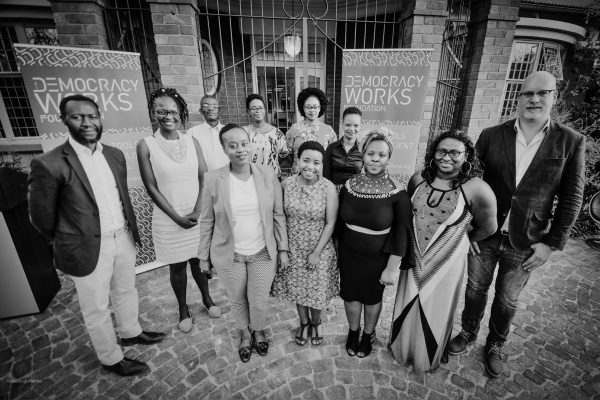The Budget reflects President Cyril Ramaphosa’s attempt ahead of the May 2019 elections to try to balance pleasing the markets, while pleasing his trade union allies on the Left and populist opponents within the party aligned with his predecessor Jacob Zuma, both who demand the impossible: SOEs restructuring without job losses, without new equity partners and without cutting BEE contracts with dodgy politically connected suppliers.
The accumulated annual costs of South Africa’s dysfunctional SOEs, in terms of jobs losses, deterring investments and reducing economic growth, are now so huge, that they are now a threat to the country’s economic sustainability. Without drastic reforms, SOEs debt is likely to force the country to seek a bailout from the World Bank and the International Monetary Fund.
Failing SOEs have a combined debt of close to R2 trillion. Gross debt estimate for the 2018/2019 fiscal year was recently revised by the National Treasury to 55% of GDP pushed upward mostly by corruption, mismanagement and efficiencies at SOEs, provinces and municipalities. Eskom, the state utility on its own has a debt the equivalent of 8% of South Africa’s GDP on its books.
Bailouts and support to the balance sheets of SOEs may break South Africa’s fiscal ceiling it has maintained – with increasing difficulty, over the past seven years. Supporting SOEs comes at the heavy cost of cutting expenditures on public services, welfare and infrastructure.
The reality is, with revenue decreasing over the past years, shortfalls in revenue collections from corporate income tax, personal income tax and VAT refunds, as the poor state of the economy is being felt, the only way to make space for additional financial support for SOEs is through additional debt being issued.
Ramaphosa, in his State of the Nation Address (SONA), said government would provide support to the Eskom balance sheet to stabilise the organisation. Finance Minister Tito Mboweni set aside R23bn a year to financially support Eskom during its restructuring. The funding is conditional on the Ministers of Finance and Public Enterprises overseeing that the reforms proposed by a presidential task team into Eskom, is implemented.
Mboweni increased the government’s contingency reserve to R13bn in 2019/2020 to respond to specific requests from other SOEs for financial help.
Government will tighten guarantee rules. SOEs requesting guarantees for operational purposes will be compelled to accept an independent Chief Reorganisation Officer, jointly appointed by the Treasury and the entity’s chief bondholder. Government is considering ending issuing guarantees for operational purposes.
Trade unions supported Ramaphosa for president of the ANC at the party’s December 2017 national conference – and in return, they want guarantees that their members will not lose their jobs. Given the shrinking fiscal space, government needs to bring equity partners at SOEs, who can inject new non-government funds, fresh non-ANC leaders and greater accountability into SOEs. Mboweni only promised, “strategic equity partners will be found where possible”.
With an election to contest, Ramaphosa has to counter populist rhetoric of his opponents within the ANC, most who are responsible for the current crisis, who are playing on the fears of job losses among the ANC rank-and-file, to paint him as doing the bidding of so-called “white monopoly capital”, intent on restructuring SOEs for their own private benefit.
The reality is that to prevent SOEs dragging South Africa into the abyss; tough restructuring is needed, which would involve selling off some entities, cutting jobs and dodgy BEE contracts.
The business models of SOEs need to be overhauled. They need to reduce costs. They are bloated. They need to end the model of covering costs by increasing price. SOEs may have to suspend all future BEE in critical areas, to avoid corruption, patronage and wastage.
A crucial exercise would be to examine which entities should be strategic, on the basis that no one else could produce the services, or that the product is deemed in the strategic interests of the country and cannot be outsourced to foreign entities, and which should be sold off almost immediately. With a shrinking fiscus, sceptical capital markets and eroded internal capacity, almost every SOE may need a strategic equity partner to get back on even keel.
The problem is, many SOEs needed to be urgently stabilised first before interventions could even begin to focus on long-term sustainability. It will take at least three years to turnaround SOEs, if all the key ingredients are in place, including capable leadership and staff, if the quality of products or services they provide cannot be cost-effectively provided by the private sector, and if they can raise finance from the markets.
The President in his SONA address reported on new boards “with credible, appropriately experienced and ethical directors”, which had been appointed at some of the SOEs. It is going to be crucial that the President fish outside the limited circle of the ANC for new capacity – and use South African talent from whatever colour, ideology and affiliation. A recycling of pre-Zuma era individuals may not always bring new insights.
The reform measures announced in the SONA and Budget falls far short. Reforming SOEs will be painful – jobs will be lost, some will have to be closed down, and the dream of having SOEs leading transformation will have to be shelved.
*This article was published in The Business Day. To view the article on their website click here.








